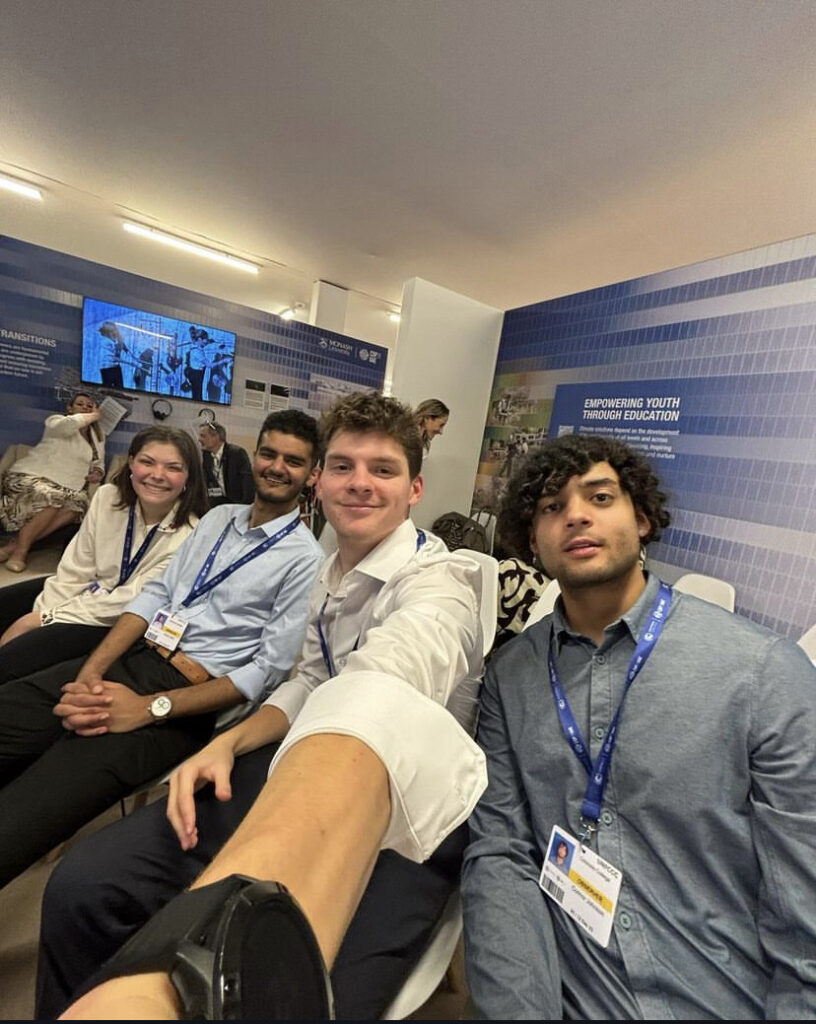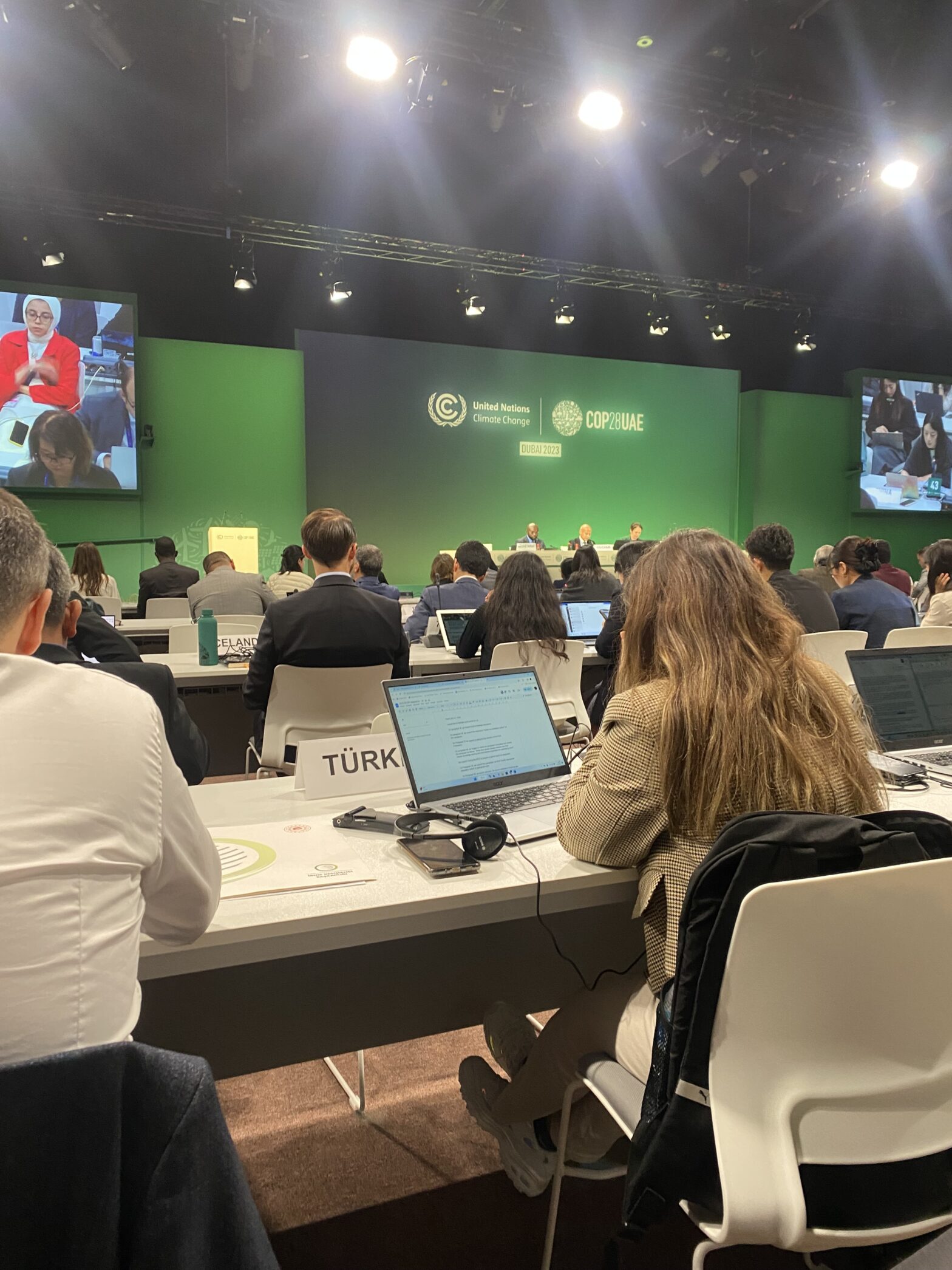Over the course of this ongoing block, I have had the incredible opportunity to attend COP28, the annual United Nations Climate Change Conference, in Dubai, as part of our class, ‘AN380 Engaging COP28 in Dubai as Ethnographers.’ While I had been relatively aware of the grandiose nature of this global event, nothing could have prepared me for the world that I was about to experience.
It all started with us making our way through the onerous security lines to enter the ‘Blue Zone’, the exclusive site where all high-level events would take place over the course of COP28. From seeing Turkish middle-schoolers clad in their national attire to hearing a spontaneous choir of indigenous folks from Ghana, the waiting itself was more immersive and eye-opening than any classroom could ever be.
On Day 1, we got to learn more about the structure of COPs through a session hosted by the Youth Environmental Alliance in Higher Education (YEAH) Network. In essence, COPs are designed to encompass a three-segment structure. Pavilions, which can be rented by countries and organizations, present a space for attendees to ‘brag’ about their ideas and accomplishments. Negotiations serve as a space for national representatives, referred to as ‘Parties’, to contribute to drafting ministerial-level resolutions addressing climate change. Lastly, the presence of Civil Society acts as an opportunity to learn about the role of various non-state actors in the fight against climate change.
The next day, I was able to attend a session of the Global Stocktake negotiations. As a former member of the CC Model UN Team and having participated in many model UN conferences, this session came across as very nostalgic in some ways. Yet, there was nothing ‘model’ about these negotiations; they were as ‘real’ as they could be. Over the next couple of hours, I would witness a variety of procedural and diplomatic developments, ranging from bloc formations to textual amendments. While the degree of contentiousness would vary through the session, the aura of being in that setting is something that will never dissipate for me.
As a Mathematical Economics major, I had previously been somewhat worried that, given my academic interests and background, I may be out of place or out of depth at the COP. However, I was soon to learn that there is always something for everybody at the COP. For me, there were the various pavilions featuring multinational development banks (MDBs), such as the World Bank and the Asian Infrastructure Investment Bank.
I would go on to spend many hours every day at these pavilions, listening to talks by business leaders and prominent policymakers whom I had previously only read about in the Wall Street Journal or in my Economics textbooks. In particular, I had the opportunity to watch a live Financial Times interview of Australian entrepreneur Andrew Forrest in person and got to personally ask Bo Li, the Deputy Managing Director of the IMF, a question about rising interest rates and debt sustainability.
But the COP is not just about fancy resolutions and fancier titles. It is also about the real change-makers in the fight against climate change, who often get left in the shadows of tacky headlines and showmanship. While exploring more of the Blue Zone, I interacted with people who were using their innovative ideas to lead the climate fight in their local communities. These ideas included the concepts of turning palm tree waste into usable construction boards and turning desert cities into sustainable oases through circular water recycling.
In the end, it is hard to express the surreality associated with walking amongst world leaders and reading about the conference that you are attending in essentially every major global publication. But when you take into account the real impacts of climate change and the real need to address it, the equation becomes simpler. I look forward to learning, engaging, and sharing more about COP28 in the coming days and hope that the reality of this issue makes its way past the headlines as well.

